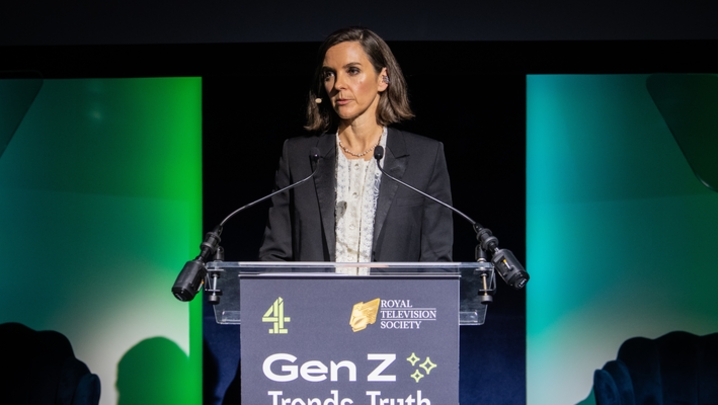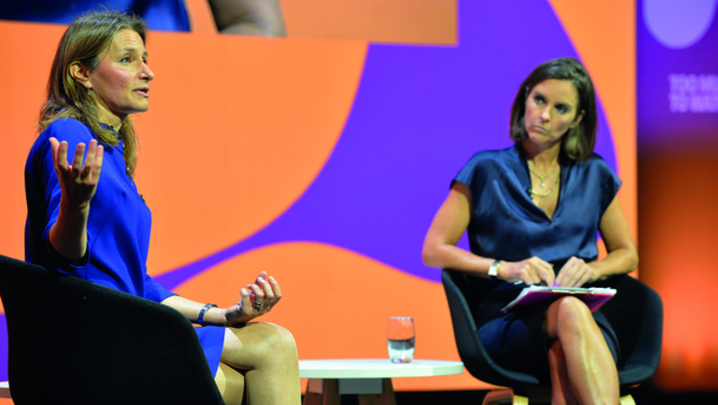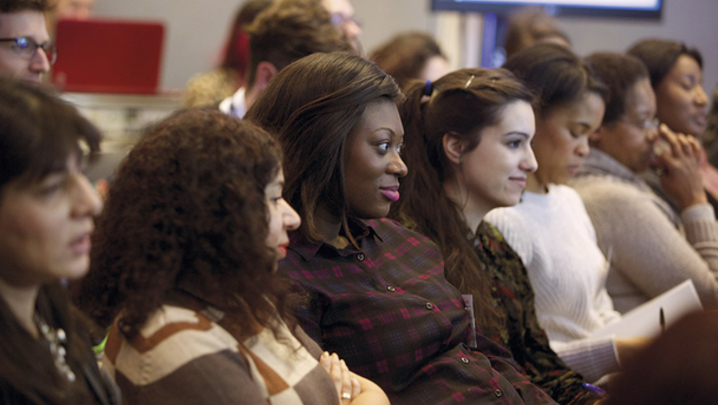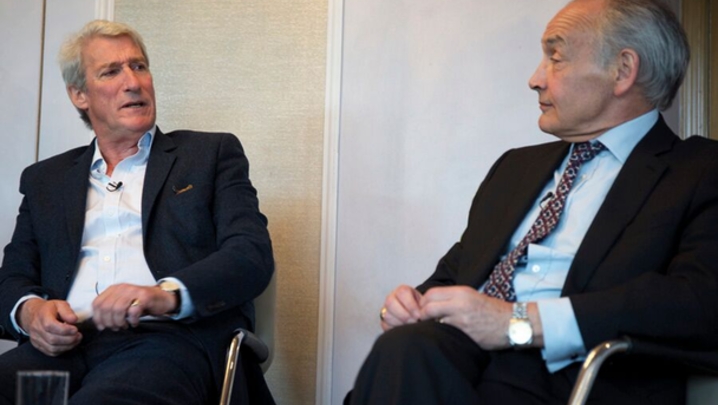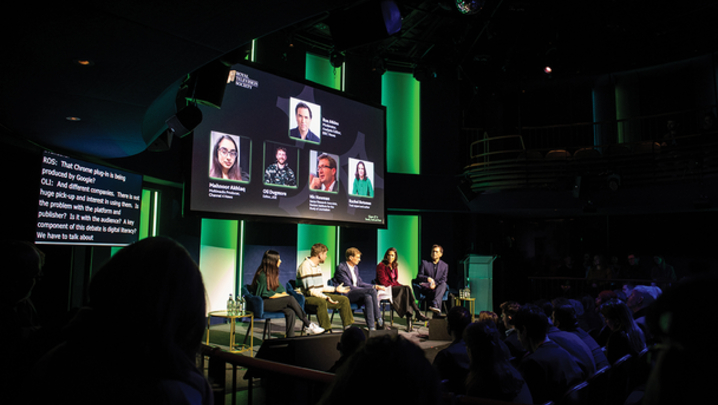Matthew Bell hears how Channel 4’s audacious TV experiment, The Jury: Murder Trial, went from bright idea to hit series
The Jury: Murder Trial was a gripping TV experiment: would two juries come to the same decision about a restaged trial – and, if they did, would it match the outcome of the real-life case?
Series 1, which played out over the final week of February last year on Channel 4, featured a case in which a man admitted killing his wife, but denied it was murder. It mixed drama – with actors playing the accused, witnesses and barristers in court – and documentary, with scenes in the jury rooms filmed like a reality show, using a fixed camera rig.
The latest RTS Futures event revealed how The Jury: Murder Trial was developed from the germ of an idea to a successful first series, with a second on the way. “[The show is] a test of our jury system to find out if it’s fair and we can trust it,” explained Ed Kellie, founder of programme-maker ScreenDog Productions.
Having established there were no legal barriers to restaging a trial for TV using the transcript of a real case, Kellie took the idea to Channel 4, which funded development. Ian Dunkley, Channel 4 Commissioning Editor, Factual Entertainment, said the first decision was to select “a murder trial that speaks to something beyond the act itself – it had to have something about it that tapped into shared experiences with the audience.
“For that reason, we shied away from things like gun crime [to] something that had more of a domestic, universal setting.” The case, he added, needed “twists and turns… in terms of the evidence”.
Next came a series of meetings with commissioning, scheduling and financing teams. “My job is to kill people’s dreams,” joked Sean Collins, who is responsible for scheduling at Channel 4. “Do I think [a show’s] going to rate, is it going to work on linear… and streaming? Where would I schedule it? When would I launch it?”
The idea for The Jury: Murder Trial was concept-tested, asking people, based on the show’s top line, whether they thought it would be successful. “We got good feedback, which added another tick on its journey to getting commissioned,” said Collins.
Dunkley added: “We do use audience research but we’re not slaves to it. Part of the joy of being a commissioner is that you have to trust gut instinct.
“Famously, Bake Off was pitched for, I think, eight years before anyone commissioned it. No one thought a load of people baking cakes in a tent was ever going to rate.”
Before shooting started, scripts were written, and actors and jurors cast. Discussing the latter, Kellie revealed: “All we said was: ‘Do you want to be a juror on a restaged version of a real case of a major crime?’
“We didn’t tell them anything about the crime. We didn’t seek people who had particular experiences. We wanted a range of ages and a range of attitudes.”
Potential jurors were vetted by psychologists who advised whether the person was sufficiently robust to take part in the series.
With filming finished, the last decision for Channel 4 was when to air the series. “Once you’ve seen a rough cut of the show, you get a better feel for the selling point,” said Collins.
“It felt a lot younger than I’d anticipated. It had more of a reality skew, which meant it couldn’t play against Celebrity Big Brother, which we knew was coming back on ITV1, so we had to tweak and dodge accordingly – there was a bit of last-minute jiggery-pokery.”
“The other decision was to strip it on consecutive nights, and box-set all episodes on the first night except for the finale so that we could create a [big] linear moment.”
‘Murder Jury – lifecycle of a commission: how to get your programme on the telly’ was hosted by the show’s producer, Grace Goddard, on 12 December. It was produced by Ethel Mercedes and Natalie Hobkirk.


